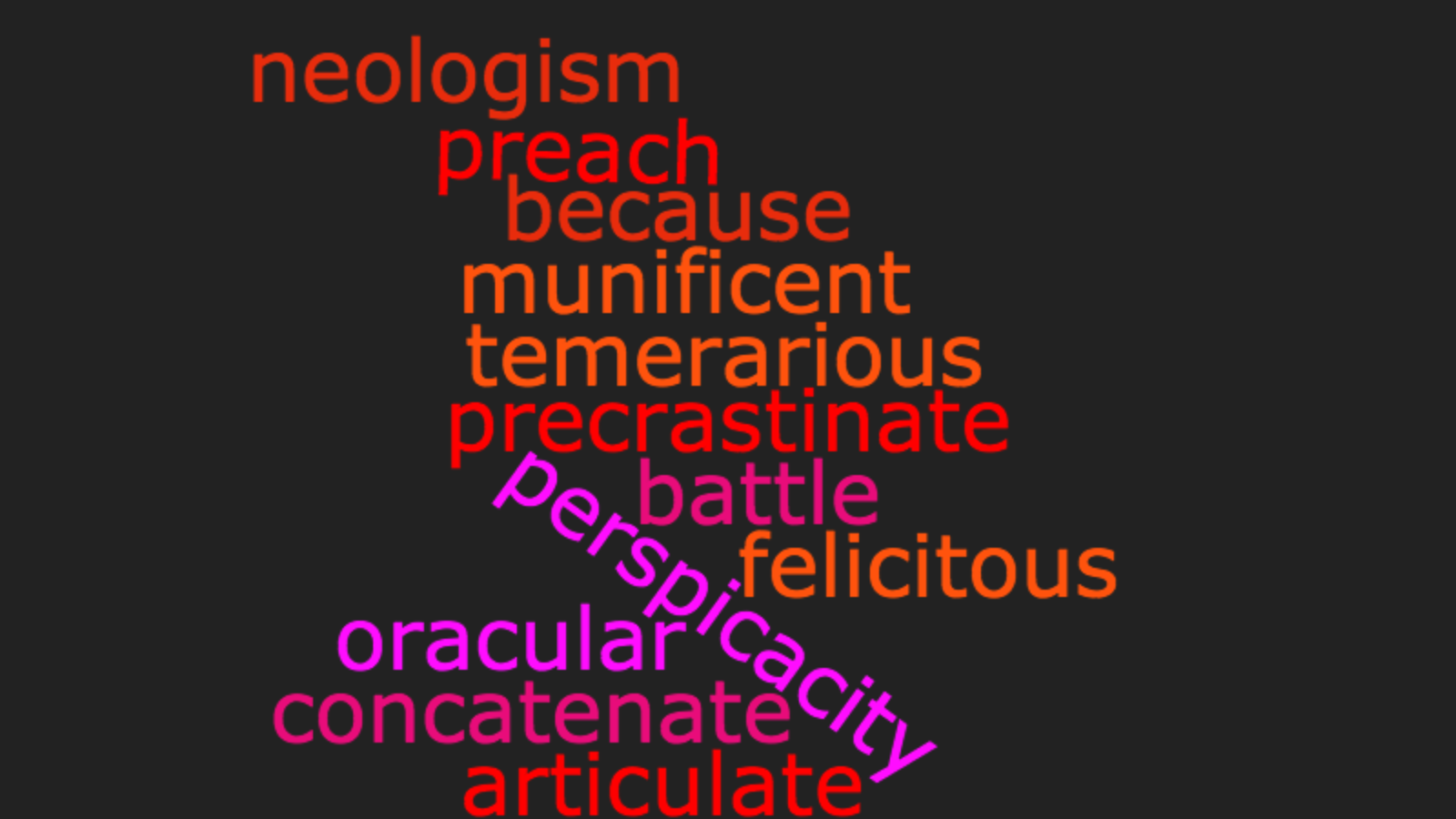There are plenty of words that get overused in the business environment – narrative, platform, synergy and competency – to name a few. Everybody understands what these words mean but they have become so broad as to be irrelevant in most uses. Often these buzzwords are bandied around to fill the space left by a person’s lack of vocabulary. In the interests of expanding my own vocabulary 9as well as yours) here are a few rare and common words you should be using more in your corporate writing.
- Preach – being a powerful advocate for your company and products is an important function of any leader or employee. While most usage has a religious connotation you do not always need a pulpit to preach. We should never be afraid to preach what we practice, or practice what we preach.
- Oracular – most investors will know instantly who you are talking about when referencing the “Oracle of Omaha”. While not the direct adjectival version of oracle, but still related, the adjective oracular, is defined as resembling an oracle (as in solemnity of delivery). In usage it can appear in a range of forms, including: “Our CEO is the oracular voice of the industry.”
- Articulate – the ability to speak or write clearly and distinctly often gets lost in a haze of buzzwords. Simply asking a colleague, client or customer to ‘articulate’ what they want is a great way to avoid confusion. Articulating something is simply saying what you mean, and meaning what you say. For anybody with a waffler in the office, a polite request to be more articulate, may go a long way.
- Concatenate – Concatenate comes directly from Latin concatenare, which in turn is formed from con-, meaning “with” or “together,” and catena, meaning “chain.” The simple definition is to link together in a series or chain (The word chain itself also evolved from catena.)
- Felicitous – Defined as ‘well suited or expressed’. The prevailing market conditions were felicitous to improving earnings. Felicitous and the noun felicity, meaning “great happiness,” and later, “aptness,” derive from the Latin adjective felix, meaning “fruitful” or “happy.”
- Neologism – This is the word that sparked this blog. A neologism is a new word, usage, or expression which has been created to reference something .Webinar, malware, netroots, and blogosphere are just a few examples of widely0used and understood neologisms.
- Because – a relatively common, well understood word that doesn’t get used anywhere near enough. There are many ways to be specific, or more articulate, in your writing. One of the best is simply giving a reason why. And the most effective transition word when giving a “reason why” is because. Why? Because it is.
- Precrastinate – The opposite of procrastination, it’s the tendency to complete or begin tasks without thinking them through. In one Penn State study, folks were asked to carry one of two buckets to the end of a course. Most chose the closest bucket, despite having to carry it further. In a sentence: “I shouldn’t have precrastinated on that report. Now I have to go back and do it again.”
- Temerarious – Closely linked to temerity, temerarious is someone or something, that is rashly or presumptuously daring. “More important still—and here he is perceived as either temerarious or feckless—[Pope] Francis has departed radically from his predecessors in that he actively encourages his bishops … to speak boldly when addressing him and in assembly….” — Michael W. Higgins, The Globe and Mail, 13 March 2015.
- Battle – Like preach from the church, we need to reclaim ‘battle’ from the military. As a noun battle is a sustained fight between large organised armed forces, but as a verb it becomes about struggling tenaciously to achieve or resist something. It is a word that engenders a sense of desperation and the need to fight to achieve a result. Business is a battle in so many ways, we should be calling it what it is.
- Munificent – Munificent first came into usage back in the late 1500s when English speakers, perhaps inspired by similar words such as magnificent, altered the ending of munificence. With a similar definition to ‘lavish’, munificent means very liberal in giving or bestowing. Twiggy Forrest’s recent philanthropic activities were a munificent gesture.
- Perspicacity – defined as having a ready insight into things; a shrewdness. My father first taught me this word many years ago after returning from a stint working in the Papua New Guinean highlands. After calling a local labourer a ‘[unrepeatable] dumb [unrepeatable]’ he was forced to check his dictionary after being told to never question said labourer’s perspicacity ever again. It is a bit pompous (the adjectival form, perspicacious, even more so) but still worth dropping into the odd email to impress the socks off the boss.
There are some great sites around that can help improve your vocabulary (many of them were the source for above). Check out:
Dictionary.com – http://www.dictionary.com/wordoftheday/
Merriam Webster – https://www.merriam-webster.com/word-of-the-day
WorkThink – http://www.wordthink.com/
Oxford Dictionaries – https://en.oxforddictionaries.com/explore/word-of-the-day
New York Times – https://www.nytimes.com/column/learning-word-of-the-day


